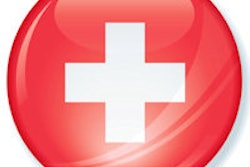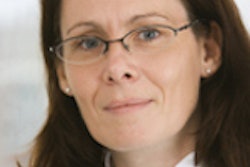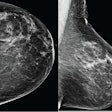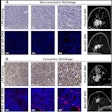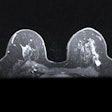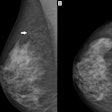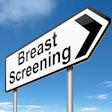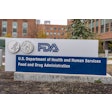Dear AuntMinnie Member,
The debate over breast screening took a surprising turn this week when the New England Journal of Medicine published a commentary by members of the Swiss Medical Board that recommended winding down screening mammography programs in the country.
The board originally published a report in February that questioned the cost/benefit ratio of breast screening, claiming that the number of lives saved by screening didn't offset harms such as overdiagnosis and unnecessary biopsies. The report recommended that no new screening programs be started in Switzerland (which doesn't yet have nationwide screening), and that a time limit be put on existing programs.
While the Swiss government can choose to ignore the board's recommendations, the report has been generating controversy in Europe, as evidenced by this article on our AuntMinnieEurope.com sister site.
By publishing the commentary, NEJM brings the debate to this side of the Atlantic, providing a high-profile soapbox to the extreme wing of the antimammography movement -- which wishes to do away with screening altogether. It's even more unusual that the journal chose to publish such a controversial piece without offering an opposing commentary from mammography's backers -- making many wonder if one of medicine's most prestigious journals has a hidden agenda in the mammography debate. Read our story on the NEJM article by clicking here.
There are so many arguments to be made against the Swiss report that it's hard to know where to begin. But the one that's perhaps most persuasive is to point out the board's cavalier dismissal that the number of lives saved by screening -- which the board conservatively estimates to be one to two lives per 1,000 women screened -- doesn't offset the alleged "harms" of mammography. That's easy to say if you're not one of those one to two women, or one of the other hundreds of thousands of women around the world who owe their lives to screening each year.
The Swiss report represents a frightening new development in the battle over breast screening -- a sign that a small group of individuals can make recommendations with major public health ramifications in a country in the heart of Europe, with little oversight or input from the people these decisions affect.
Much as war is too important to be left to the generals, it could be that screening mammography is too important to be left to the statisticians. Hopefully, Swiss government officials -- and those of other countries -- will be cognizant of the interests and opinions of women as they process this latest salvo in the battle over breast screening.
CT screening of COPD
In other news, we revisit another screening debate, this time CT lung cancer screening. As CT screening of heavy smokers moves toward becoming a reality in the U.S., some researchers are wondering whether its benefits should be extended to individuals with other risk factors.
People with chronic obstructive pulmonary disease (COPD), for example. In our CT Digital Community, we're highlighting research from Spain and the U.S. that found that in 600 individuals with COPD, the ones who received CT screening had far lower mortality rates than the ones who didn't. A recent editorial helped refine the conclusions. Learn more by clicking here, or visit the community at ct.auntminnie.com.
MRI and dementia
Finally, visit our MRI Digital Community to find out how Dutch and U.S. researchers used MRI to find a relationship between feelings of apathy in older adults and the volume of gray and white matter in the brain.
Why is it important? The researchers believe that apathy in the elderly could be a sign of clinical changes in the brain, perhaps as serious as dementia. Learn more by clicking here, or visit the community at mri.auntminnie.com.




